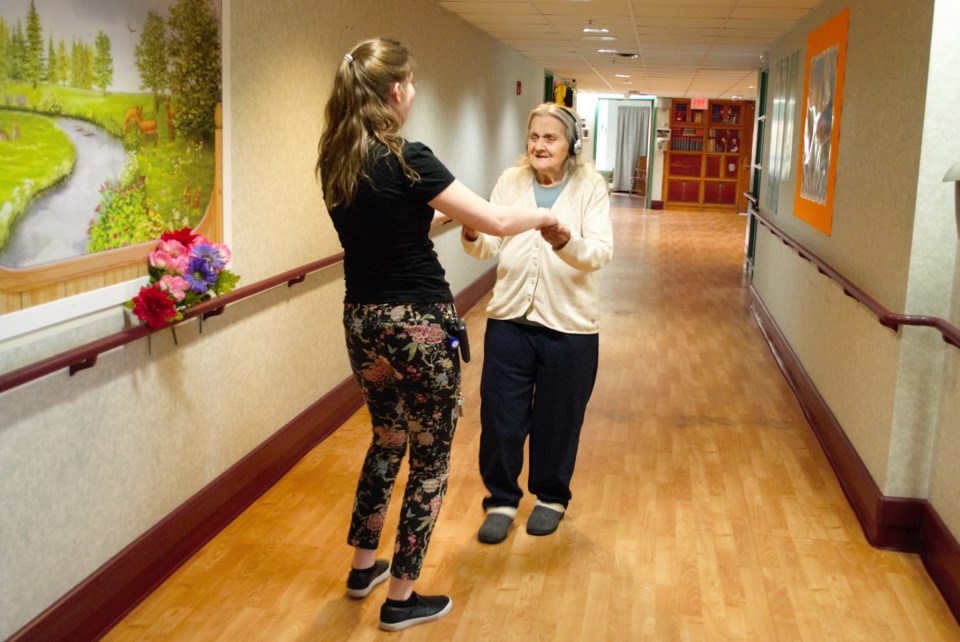An innovative program at four local long-term care homes is linking music to memories of the past for residents, making a difference in the lives of seniors and the staff that care for them.
The Mind and Melody program runs at all four County of Simcoe long-term care homes: Trillium Manor in Orillia, Georgian Manor in Penetanguishene, Simcoe Manor in Beeton and Sunset Manor in Collingwood. Benefits of the program include soothing boredom and distress, increasing co-operation, reducing agitation, anxiety, fear and depression and helping families and staff connect with residents in a meaningful way.
“To see the smile on their faces... the music is evoking memories from the past. Our brain never forgets music. Usually, with every moment in life, music is attached to it in some way,” said Cindy Harvey with program support services at Sunset Manor in Collingwood.
While the science behind Alzheimer’s disease isn’t set in stone, research indicates the medial prefrontal cortex of the brain may serve as a hub for music, memory and emotions. It is also one of the last brain regions to atrophy in Alzheimer’s patients, which could be the main reason for the program’s success.
The program started three years ago locally, at that time called Music and Memory.
“We became a Music and Memory-certified home,” said Jenn Baulke, program support services supervisor at Sunset Manor. “We took training through Music and Memory.”
The trademarked program started in the U.S. Training undertaken by staff across the county included online modules, 10 devices and a plaque of certification. After that, the county-run homes used their new-found knowledge to venture out on their own to start Mind and Melody.
“When new families come to the home, we have a Mind and Melody assessment we do,” said Harvey. “We ask how important music was in the resident’s life, and we also ask what kind of music.”
Harvey said families fill out a checklist listing the types of songs the resident would enjoy, from classical to country, big swing to religious music. If the requested music isn’t on the checklist, staff will make extra effort to find any music not listed.
“For example, we have a resident who is Italian, so we needed some Italian music. That’s what she’s listening to now. She could speak English before, but (with her illness of dementia/Alzheimer’s), she’s reverted back,” said Harvey. “She loves listening to the Italian music and she can relate to that from her old memories.”
Harvey says staff notices a major difference in their residents, which they attribute to the program.
“After lunch they get tired. They lay down on the couch asleep a little bit, but when I put the music on them, they’re up and ready to go,” said Harvey. “It’s also much better with their care. If we know music is really important to them we can put the music on them before or during care. They are then much more accepting of care.”
Dolly Yonev, a resident at Sunset Manor, had a very close relationship with music throughout her life.
“We were told by family that music was very important to her. She and her husband were married for 70 years and they would sit together and play records,” said Harvey. “You can see the difference in her when you put her music on. She starts clapping and she’ll dance. She’s a wonderful dancer.”
“She has a big smile on her face. What a difference it makes,” she added.
With 68 residents now participating in the program at Sunset Manor alone, all four long-term-care homes are always on the lookout for donated technology. They also can use iTunes gift cards, as they purchase all the music in their collections.
If you have an old iPod you’d like to donate to the program, contact administrative staff at the county-run long-term-care home nearest you.



